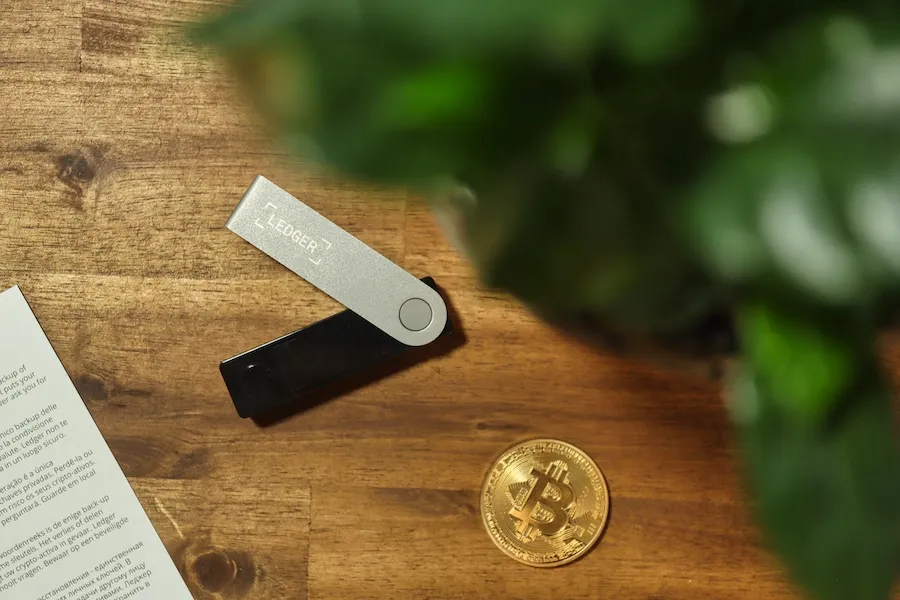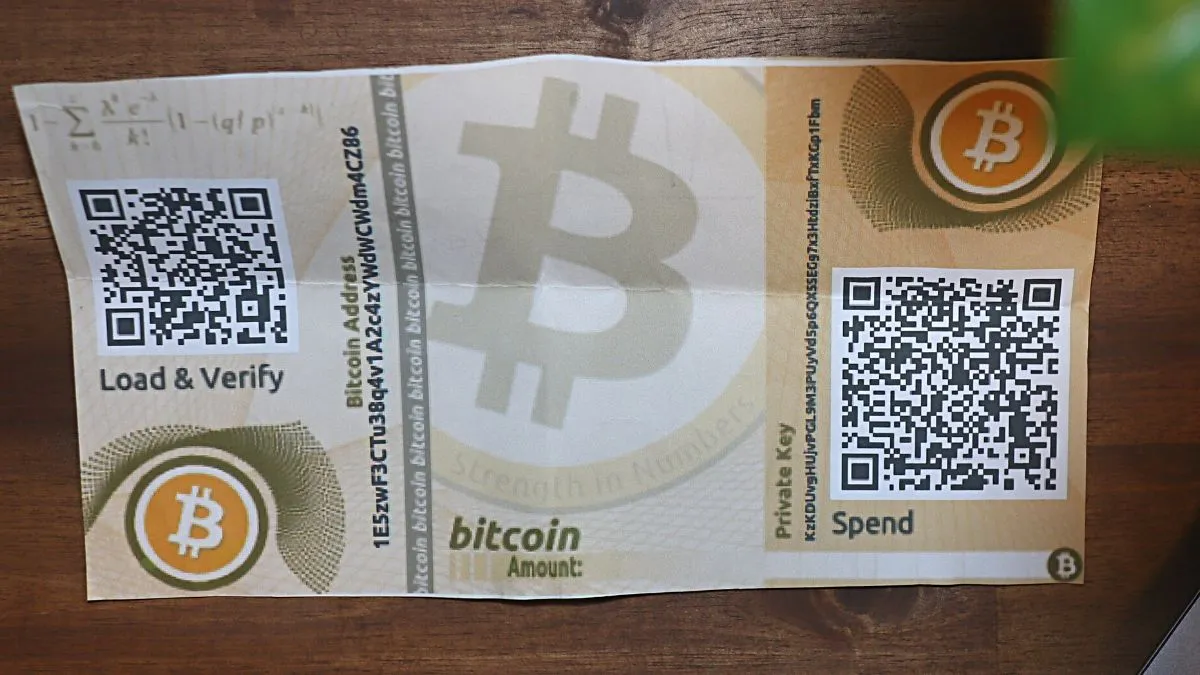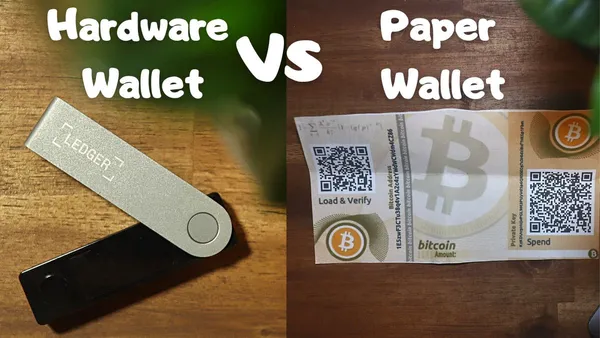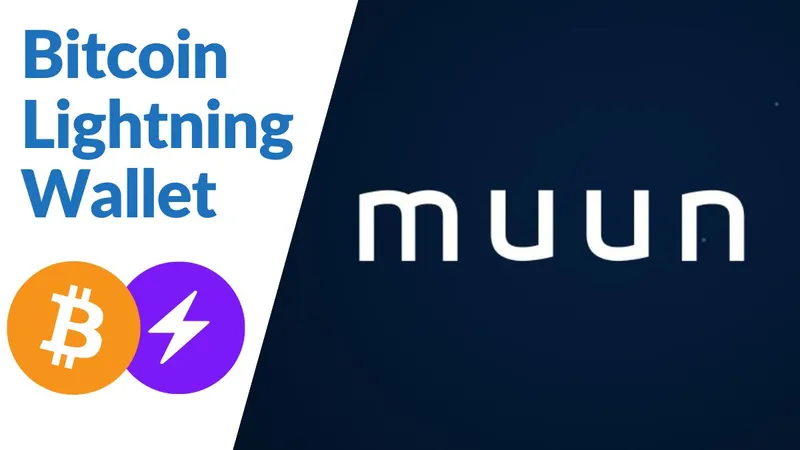Should you store Bitcoin, Ethereum, or other cryptocurrencies in a hardware wallet or will a paper wallet do? In this article, I discuss the pros and cons of both wallet types.
What is a hardware wallet?
A hardware wallet is a form of cold storage that securely stores your private keys on a hardware device, without them being connected to the internet.
Check out different wallets in hardware wallet comparison.
Most hardware wallets are small mini-computers with little functionality and look like USB flash drives. They often have a small screen and few, physical buttons with which to control them. This backwardness is deliberate to achieve a robust security standard.
 Hardware Wallet: Ledger Nano X
Hardware Wallet: Ledger Nano X
The advantages of a hardware wallet over a traditional software wallet (such as an app on a smartphone) are:
- Private keys are secured in a protected environment (e.g., a special mini-computer) and cannot be copied out from the device.
- Resistant to viruses and malware that might be on the computer.
- After sending the coins, the hardware wallet is still secure, while a new address should be created for a paper wallet for security reasons.
- Clear management software via portfolio tracking
You can find some hardware wallets on this wallet overview.
What is a paper wallet?
 A Bitcoin Paper Wallet from Bitaddress.org
A Bitcoin Paper Wallet from Bitaddress.org
The Paper Wallet is also a so-called cold storage for your cryptocurrencies and tokens. Many users prefer to secure their private keys in cold storage, somewhere offline without a connection to the Internet.
The storage in cold storage has many advantages in terms of security aspects compared to a hot storage, i.e. wallets that have some form of connection to the Internet.
The simplest form for such cold storage is to write down the cryptographic key pair on a piece of paper. In the common opinion of many Bitcoin experts, the paper wallet is considered one of the most secure methods of storing large amounts of Bitcoin. This is also what Andreas M. Antonopoulos writes in his book Mastering Bitcoin: Unlocking Digital Cryptocurrencies.
However, he also stated more recently that nowadays a Hardware Wallet has better security than a paper wallet.
Paper wallets can be created for free and unlimited. There are a few points to keep in mind when generating them. Feel free to read my guide on how to create a bitcoin paper wallet. You can even create a paper wallet completely analog to a cube.
Redeeming paper wallets is not difficult either. Most feasible: you only need to import the private keys into another (software) wallet. Feel free to read this guide on how to import and withdraw a bitcoin paper wallet if interested.
Advantages Hardware Wallet
Hardware Wallets are the safest way to manage multiple cryptocurrencies securely and flexibly at the same time. Multiple cryptocurrencies and tokens can be stored on hardware wallets at the same time and through one device.
The devices are designed to be very secure and the private keys can only be accessed in a protected environment.
Behind hardware wallets are companies that continue to develop functionalities. For example, with the Ledger Nano X, new coins are continuously added, security gaps are closed and new functionalities (e.g. staking, lending) are also integrated.
Disadvantages Hardware Wallet
Some of the advantages are also disadvantages at the same time with hardware wallets. So, more flexibility also means less security.
Managing multiple coins through one device poses a higher risk. If you lose your seed, then all the coins managed in the hardware wallet can also be gone.
Advantages Paper Wallet
Paper Wallets have many advantages. They can be generated for free and unlimited. Paper Wallets are simple. They have only the most necessary: an address, the public key, and the private key. That's all they need and that's why they are very easy to understand.
In addition, paper wallets in printed form are very similar to existing cash. For many newcomers, paper wallets are therefore simply more "tangible".
Paper Wallets can be created for any cryptocurrency. Thus, it is generally less risky to have multiple paper wallets for different cryptocurrencies than to use only one "wallet" for managing all crypto assets. If you lose access to one paper wallet, the other paper wallets are not affected because each paper wallet has its own private key or password.
Disadvantages Paper Wallet
However, paper wallets also have some disadvantages. Due to these disadvantages, I do not recommend creating them for newbies, but rather for advanced users.
Errors can occur when generating paper wallets securely, which can be fatal.
Example: when using online generators to randomly generate key pairs, they may be scam sites. They could store your private keys in the background and then have access to your wallet just like you do. If you then transfer your first coins to that paper wallet, the hacker can steal your coins from that wallet. Therefore, be sure to check out the instructions for how to create a Bitcoin paper wallet.
If paper wallets have been created safely, the next trap is already lurking. The wrong safekeeping and securing of the Paper Wallet.
It is very important to keep the paper wallet analog and not digital (e.g. as a screenshot on the computer), otherwise, it would not make sense to use paper wallets.
Also, you should make several backups of the printed Paper Wallet and keep them in different, safe places. Wouldn't it be annoying if you can't find the paper wallet anymore or if, for example, a fire destroys your assets? That's exactly why you should make multiple, analog backups!
Conclusion: Hardware Wallet vs. Paper Wallet?
It depends on your use case and it doesn't have to be either or. Are you a beginner? Then you should consider a hardware wallet (e.g. the Ledger Nano X).
Have you been in crypto for a while and are not scared off by the terms public key and private key? The paper wallets might be interesting for you.
A combination of both is also highly recommended. A paper wallet for (very) long-term investments and a hardware wallet for the short and medium term.
What do you use? Feel free to write me below in the comments about which wallet(s) you use and why.












